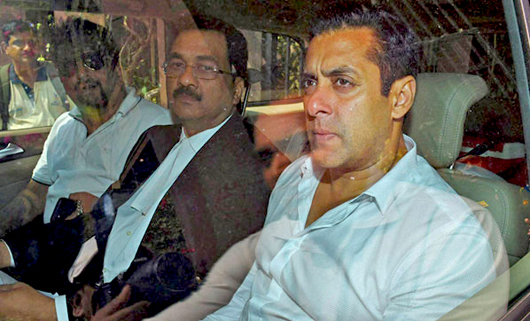Jodhpur, Apr 30: Bollywood star Salman Khan was nonplussed when a judge in Jodhpur asked him on Wednesday about his caste but he quickly gathered his wits and replied that he was both “Hindu and Muslim”.

Khan also told chief judicial magistrate Anupama Bijlani that he had been framed in a case registered against him under the Arms Act over the shooting of some endangered animals in 1998.
The actor appeared in the court to record his statement in the case. As part of the process, Khan was required to answer questions about his father’s name, profession and caste.
The court witnessed an interesting exchange when the judge asked Khan to state his caste. Khan was confused by the judge’s question and someone in the court suggested he should say he was a Muslim.
The actor then said he was both Hindu and Muslim. “My father is Muslim and my mother is Hindu,” Khan said, speaking in Hindi.
Later, the judge read out the statement of four prosecution witnesses and asked Khan for his statement.
Khan told the judge he was innocent and had been framed by officials of the forest department. His counsel sought more time from the court to present witnesses in Khan’s defence.
The court fixed May 4 as the date for the next hearing.
During the last hearing on April 17, the judge had directed Khan to appear in person.=
Khan arrived in court at around 10 am as a large crowd thronged the premises to get a glimpse of the star. His bodyguards entered the courtroom but were pushed out by policemen.
The case under the Arms Act pertains to an arms licence for two weapons, a revolver and a .32 rifle, that Khan was carrying during the shooting of the film “Hum Saath Saath Hain” in 1998.
The prosecution contended that Khan’s arm licence expired on September 22, 1998 and he had not renewed it.
Khan and some other members of the cast of the film were accused of shooting three Chinkaras and a Black Buck at Kankani, near Jodhpur, on October 1, 1998.
The prosecution contended that Khan used the two weapons to shoot the animals, a charge denied by the actor.




Comments
Add new comment